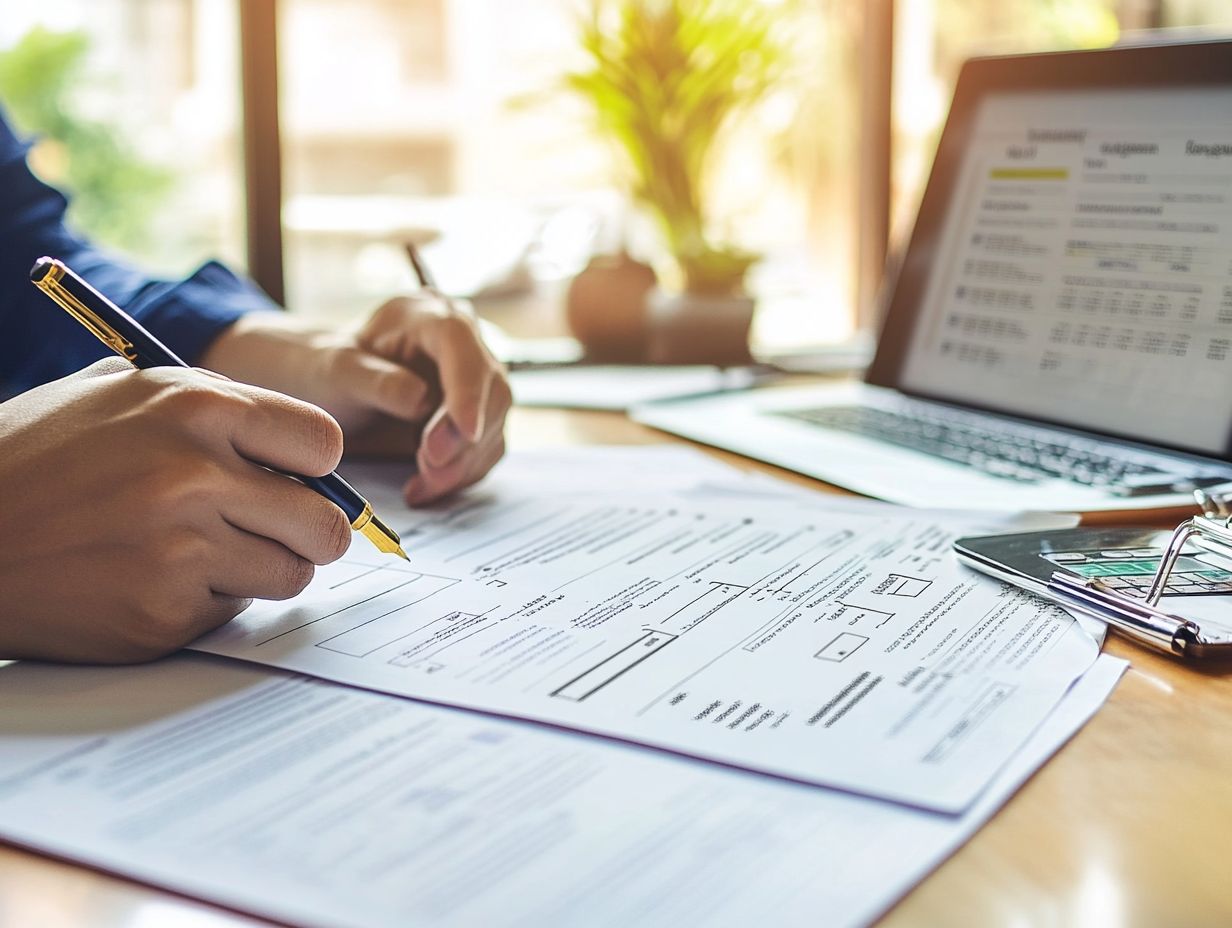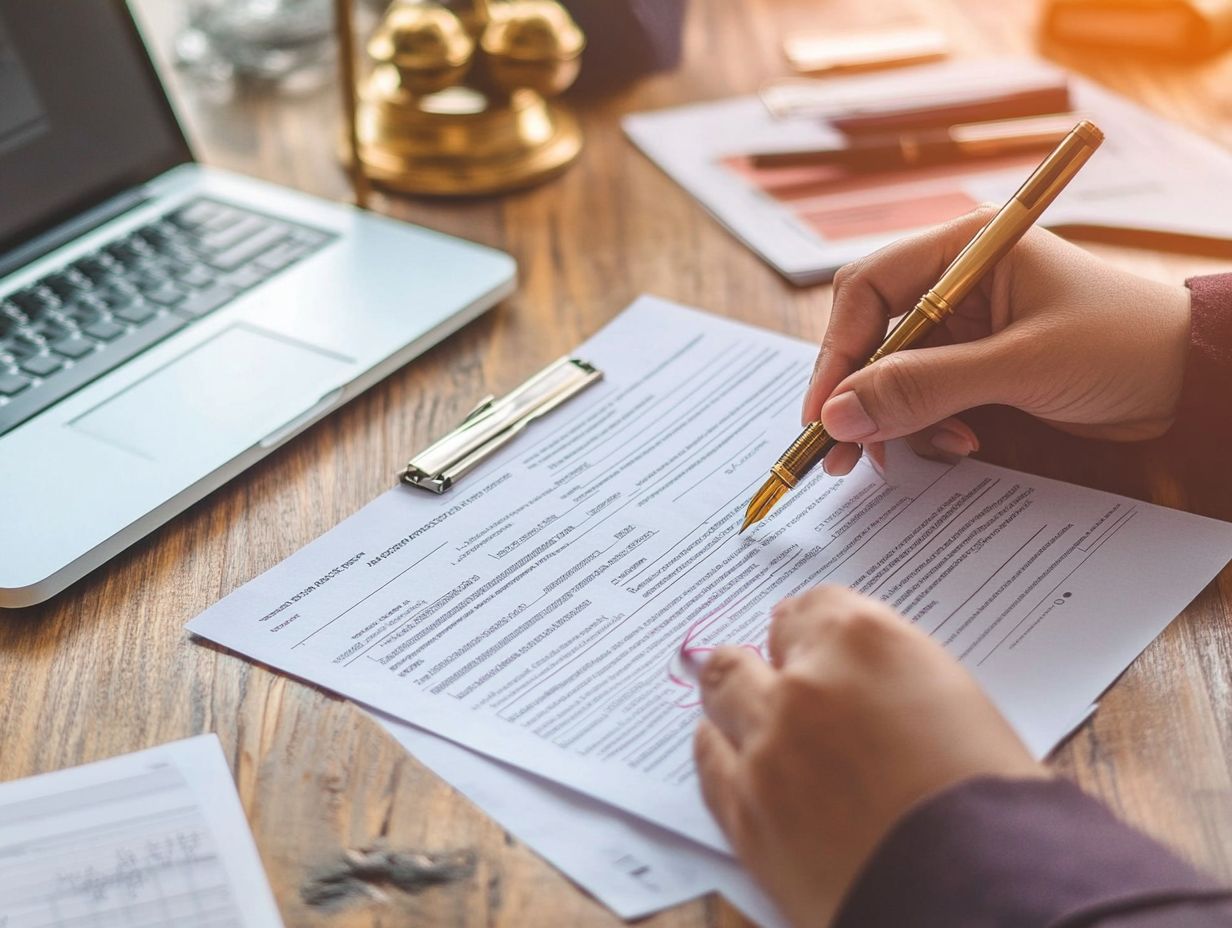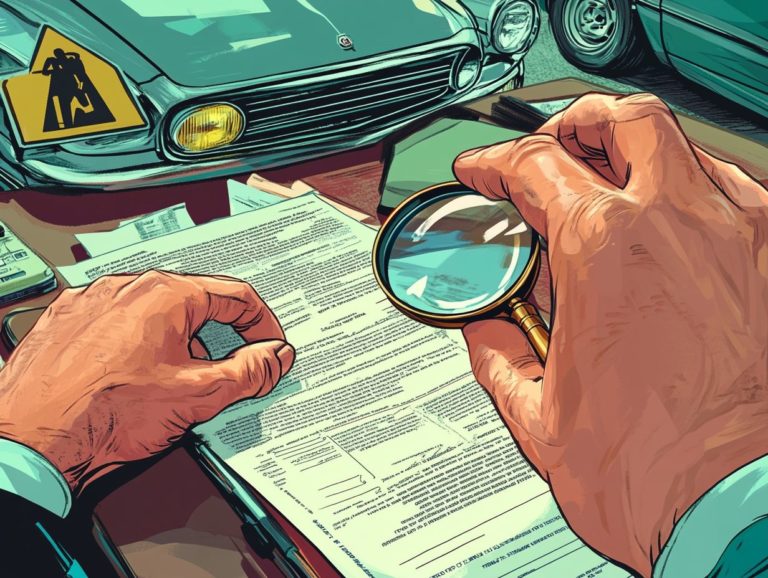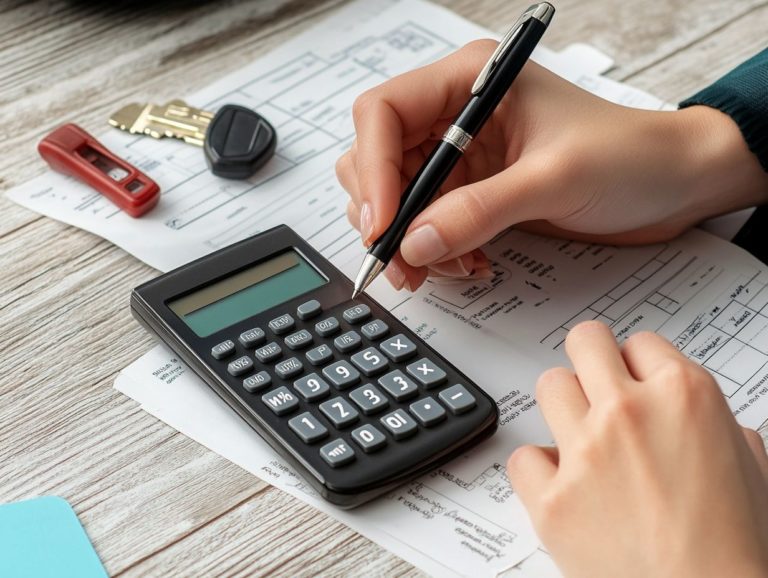The Importance of Regularly Reviewing Your Lease
Navigating the complexities of a lease agreement can feel overwhelming, but grasping its key terms and conditions is essential for both tenants and landlords.
Regularly reviewing your lease isn t merely a good habit; it s vital for steering clear of potential legal pitfalls and ensuring that your rental terms remain equitable.
This guide delves into the significance of lease reviews, outlining when and how to conduct them, as well as the subsequent steps to take empowering you to make informed decisions that safeguard your rights and interests.
Contents
Key Takeaways:

- Reviewing your lease regularly helps avoid potential legal issues and ensures fair terms and rent.
- Recommended frequency for reviewing your lease is at least once a year to stay informed and protect your rights as a tenant.
- During your lease review, keep an eye on crucial factors like terms, conditions, and don t hesitate to seek legal help if you’re unsure.
Understanding Your Lease Agreement
Understanding your lease agreement is essential for you, whether you’re a landlord or tenant. It lays out the terms of your relationship, detailing rental costs, lease provisions, and the legal options available should disputes arise.
A well-crafted lease agreement can significantly reduce issues during the lease term, providing clarity on responsibilities and rights in both commercial and residential contexts.
Particularly in the wake of the COVID-19 crisis, having a solid grasp of these documents enables you to tackle potential challenges, including the eviction process and adjustments in rental costs.
Key Terms and Conditions
Key terms and conditions in a lease agreement are the backbone of your relationship with your landlord, shaping everything from rental costs to lease duration and the various provisions that both you and your landlord must follow.
These terms not only set clear expectations but also cultivate a sense of trust between everyone involved. For example, the rental cost is often a crucial focal point, impacting your budget and your landlord’s profitability.
The lease duration can provide stability for you while offering revenue predictability for your landlord. Maintenance responsibilities frequently arise as a critical factor that can either strengthen or strain your relationship, depending on how issues are handled.
Renewal clauses are also vital, providing security for both parties by allowing the option to continue the arrangement under mutually agreeable conditions. Grasping these elements is essential for ensuring a harmonious and legally sound leasing experience.
Why Regularly Reviewing Your Lease is Important
Staying on top of your lease could save you from frustrating surprises! Regularly reviewing your lease agreement is essential, whether you’re a landlord or tenant. Given the evolving circumstances surrounding situations like the COVID-19 crisis, unexpected changes in rental costs and eviction processes can emerge.
A thorough review enables both parties to ensure compliance with lease provisions and stay informed about their rights and responsibilities. This attention is crucial for fostering a healthy landlord-tenant relationship, allowing for clear communication and mutual understanding.
Avoiding Legal Issues
Avoiding legal issues in a landlord-tenant relationship starts with you being fully aware of your rights and obligations as outlined in the lease provisions. This knowledge is crucial for handling the eviction process properly and understanding your available legal recourse.
Clear communication plays a vital role in minimizing misunderstandings that can lead to disputes over late payments, property maintenance, or unexpected lease terminations. Regularly reviewing the lease agreement together ensures that you and your landlord are on the same page, with each provision clearly understood and mutually agreed upon.
As a tenant, knowing when to seek legal advice can prevent larger issues down the line. On the flip side, landlords should be diligent in documenting all communications and actions taken.
By fostering a culture of openness and adhering to the outlined lease terms, both tenants and landlords can effectively mitigate risks and address any grievances that may arise.
Ensuring Fair Terms and Rent

Ensuring fair terms and rent in a lease agreement is essential for fostering a positive landlord-tenant relationship. It can effectively prevent disputes that may lead to financial strain or legal action.
Transparency plays a crucial role in establishing rental costs and lease terms. It helps build trust between you and your landlord. When landlords communicate openly about the reasoning behind pricing whether it s influenced by market trends or property values you feel respected and valued as a tenant.
For example, if landlords illustrate how local rental rates have surged due to demand, it clarifies the decision-making process for you as a potential renter. Clear, detailed agreements enable both parties to navigate their responsibilities effectively. This ultimately paves the way for more stable, long-term arrangements.
When you understand the rationale behind your lease agreement, it builds trust and fosters a sense of community. This benefits the overall rental market.
When to Review Your Lease
Understanding when to review your lease agreement is crucial for both landlords and tenants. This becomes especially important during significant moments, such as lease renewals, annual rent adjustments, or in response to shifts in the housing market.
Recommended Frequency
The recommended frequency for reviewing a lease agreement may vary. However, it s wise for you whether a tenant or a landlord to evaluate the lease terms at least once a year or whenever significant changes arise, such as shifts in the market or new legislation.
During economic downturns, it s particularly crucial to reassess rental agreements. This ensures that conditions remain fair and viable for both parties involved. If there are fluctuations in the rental market, especially spikes in rental costs, a timely review can help you avoid overspending or financial strain.
Adjustments to lease terms like extensions or alterations due to changes in property management or regulatory requirements need careful scrutiny. This way, you can ensure that the interests of both the tenant and landlord are adequately protected. Regular assessments foster a proactive approach that enhances the rental relationship.
How to Review Your Lease
To effectively review your lease agreement, it s essential for both landlords and tenants to methodically assess the lease provisions. This process ensures that you fully understand your rights and obligations while also allowing you to identify any clauses that may require negotiation or clarification.
Taking this careful approach enables you to make informed decisions and fosters a harmonious rental relationship.
Important Factors to Consider
When reviewing a lease, consider several important factors, such as lease provisions, the current landlord-tenant dynamics, potential legal recourse options, and any necessary adjustments in response to the COVID-19 crisis.
Diligently examine the maintenance responsibilities outlined in the lease, as these can significantly impact your overall living experience. Understanding the payment terms is equally essential; any ambiguities can lead to disputes that strain your relationship.
Having a clear dispute resolution mechanism in place offers reassurance to both parties. It ensures that any disagreements can be addressed amicably and efficiently. The effectiveness of these elements can greatly influence your day-to-day interactions and the long-term stability of the landlord-tenant relationship.
What to Do After Reviewing Your Lease

After reviewing your lease agreement, it s essential to determine your next steps. This may involve negotiating changes or renewals to the lease. Also, gain a clear understanding of your legal recourse in the event of disagreements.
Take a moment today to review your lease and ensure you re protected!
Negotiating Changes or Renewal
Negotiating changes or renewing a lease requires clear communication. It also involves a genuine willingness to find common ground on rental costs, lease duration, and other critical terms that matter to both you and your landlord.
To create a productive environment for discussions, it s essential for you to gather relevant data. Think about current market rates and comparable properties. This preparation allows you to present a strong case while also being ready to hear the landlord’s perspective.
Keep an open mind during the conversation. There might be alternate solutions to explore, such as negotiated maintenance provisions or flexible payment options that could lead to a mutually satisfactory agreement.
Ultimately, understanding the motivations behind each party s requests is key. This insight helps you craft terms that benefit everyone involved, paving the way for a successful negotiation.
Seeking Legal Advice if Necessary
If complications arise during your lease review process, seeking legal advice can be essential for navigating the eviction landscape and comprehending the rights and obligations outlined in your lease agreement.
You may find yourself facing unexpected challenges as a property owner or tenant, leading to disputes over issues like unmet rental terms or property maintenance concerns. If conflicts escalate, contact a qualified attorney who understands rental laws for clarity and strategic direction.
They ll understand the complicated legal terms in your contract and help ensure you re treated fairly under the law.
Getting professional help gives you a clearer view of your options and consequences, enabling you to make informed decisions and effectively protect your interests.
Frequently Asked Questions
What is the importance of regularly reviewing your lease?
Regularly reviewing your lease allows you to stay informed about any changes or updates to your lease agreement. This helps to prevent misunderstandings or conflicts in the future.
When should I review my lease?

It is recommended to review your lease at least once a year or whenever there are major changes in your living situation or the rental market. This could include changes in rent, added fees, or changes in the terms and conditions of the lease.
What are the benefits of reviewing my lease regularly?
Regularly reviewing your lease helps you catch any errors or discrepancies that may have been overlooked in the initial agreement. It also gives you the opportunity to negotiate terms that no longer work for you or to discuss concerns with your landlord.
What should I look for when reviewing my lease?
- Changes in rent or added fees
- Length of the lease
- Penalties for breaking the agreement
- Rules and regulations outlined in the lease
What can I do if I have concerns about my lease?
If you have concerns about your lease, it is important to discuss them with your landlord or property management company. It may be possible to negotiate certain terms or make changes to the lease to better suit your needs.
What happens if I don’t review my lease regularly?
If you do not review your lease regularly, you may miss important updates or changes that could affect your living situation or financial obligations. This could lead to misunderstandings or conflicts with your landlord and may even result in penalties for breaking the lease. Don t wait until it s too late; review your lease regularly to protect your rights!






